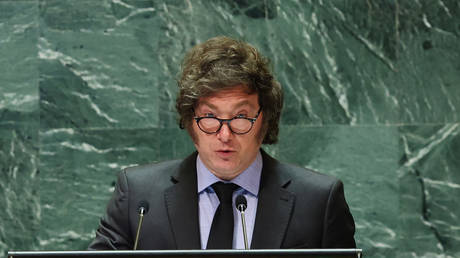Last week, staff, students (along with their families), and the surrounding community came together to celebrate Mai-Habar Technical School’s 24th graduation commencement ceremony. In total, 130 students graduated (including 66 females), having completed programs across seven different fields of study. Only a few days before, Dekemhare Technical School held its own graduation commencement ceremony – its 20th overall – with 103 students (and 48 females) receiving their certificates after successfully completing programs across five fields of study.
Speaking to local media outlets shortly after the conclusion of the ceremonies at the institutions, Moasho Gebretensae, director general of technical and vocational education and training at the Ministry of Education, explained that the government has increasingly prioritized improving facilities within technical and vocational education institutions. He also went on to note that around 900 students are expected to graduate this year from various technical and vocational institutions located across the nation.
In addition to being extremely positive and encouraging news, as well as a great testament of the hard work and commitment of students, their families, and communities, the recent graduation ceremonies offer a valuable opportunity to highlight several important aspects of technical and vocational education and training (TVET).
Education is regarded as a right, key to development, and a central pillar of society
As I wrote in an article published earlier this week, in Eritrea education is regarded as a fundamental right, key to development, and a central pillar of communities and society. The country continues to exert considerable effort, as well as direct significant investments, toward ensuring equitable access and delivery of quality education at all levels for all citizens, guided by the principle of social justice. This commitment is articulated in the country’s National Charter, adopted in Nakfa in 1994, which declares that:
“Education is the foundation of development. To provide equal educational opportunity means to provide equal opportunity for development. We must widely expand education so that our people can be free from ignorance, acquire knowledge and skills through various means, and enhance their productive capacity to build their country.
Education is a fundamental right to which every Eritrean is entitled. Therefore, we must expand education to the rural areas, of the country where educational opportunity has so far been scant. We must build an advanced educational system which serves national unity and development, and equips people with knowledge and skills. Without the development of education, we cannot build our country or enhance democracy and justice.
Our greatest asset is our human resource. Therefore, we must assign a high priority to its development. Formal education is one way. In addition, all governmental and non-governmental institutions must provide continuing education and training. Continuous effort must be exerted to develop knowledge and skills throughout the society.”
Shedding light on TVET access
In terms of TVET, Eritrea has established a total of seven institutions across the nation, with the vast majority of students enrolling following the completion of the tenth grade. At present, the country’s TVET institutions offer programs in different fields and areas, including electronics, carpentry, drafting, auto mechanics, agriculture, and music, among others. Notably, programs combine a comprehensive theoretical study component with extensive practical, hands-on training. Of course, consistent with Eritrea’s commitment to social justice and equality, TVET programs are provided free of charge for all students and initiatives are taken to encourage the enrolment of women or historically underrepresented and marginalized groups.
Since 2015, a total of more than 10,000 students, enrolled in 20 different fields of study, have graduated from Eritrea’s various TVET institutions. For Mai-Habar Technical School, more than 5,000 students have graduated since it opened its doors in 1994, while almost 3,500 students have graduated from Dekemhare Technical School since its establishment in 1998. Even though total enrolments within TVET have steadily increased in recent years, the government is working hard to widen access through expanding capacity of existing institutions, constructing new ones, and facilitating the provision of evening courses.
What is more, alongside the formal programs offered by Eritrea’s various TVET institutions, many government ministries, as well as a variety of national organizations, such as the National Confederation of Eritrea Workers (NCEW), the National Union of Eritrean Youth and Students (NUEYS), the NUEW, the MoLWE, and the Ministry of Labor and Social Welfare (MoLSW) regularly provide short-term technical and vocational training or courses. These initiatives, focused on the development of skills and competencies within a variety of fields, strengthen human capital formation while sustainably and efficiently supporting employment and productivity.
Last year, the MoLSW provided access to TVET program for more than 400 individuals, focusing on enhancing their employment opportunities and ensuring a skilled labor force, while the MoLWE trained nearly 900 individuals, emphasizing the importance of environmental sustainability and the development of a green economy. As well, the NUEYS trained almost 1,400 young people, fostering the next generation of skilled professionals and leaders, the NCEW provided vocational training to approximately 3,600 individuals, promoting labor rights and enhancing workers’ capacity to contribute to the economy, and the NUEW trained about 500 young women, promoting their empowerment and active participation in the workforce.
TVET helps to change – and improve – lives
Over the years, Eritrea’s TVET programs have helped many of graduates to obtain steady employment in jobs directly related to their specific skills training. Not only have they been able to practically apply their learning, they have had the opportunity to increase their earnings and take concrete steps to positively change their lives. As well, TVET programs have allowed young Eritrean women to develop skills in numerous trades that have traditionally been restricted to men, such as carpentry, construction, woodwork, and metalwork, among others. Many of these young women have gone on to thrive in these various areas and fields, thus demonstrating autonomy, voice, and agency, as well as tangibly shifting, if not dramatically upending, powerful, deeply-rooted socio-cultural stereotypes and outdated beliefs or perceptions.





+ There are no comments
Add yours